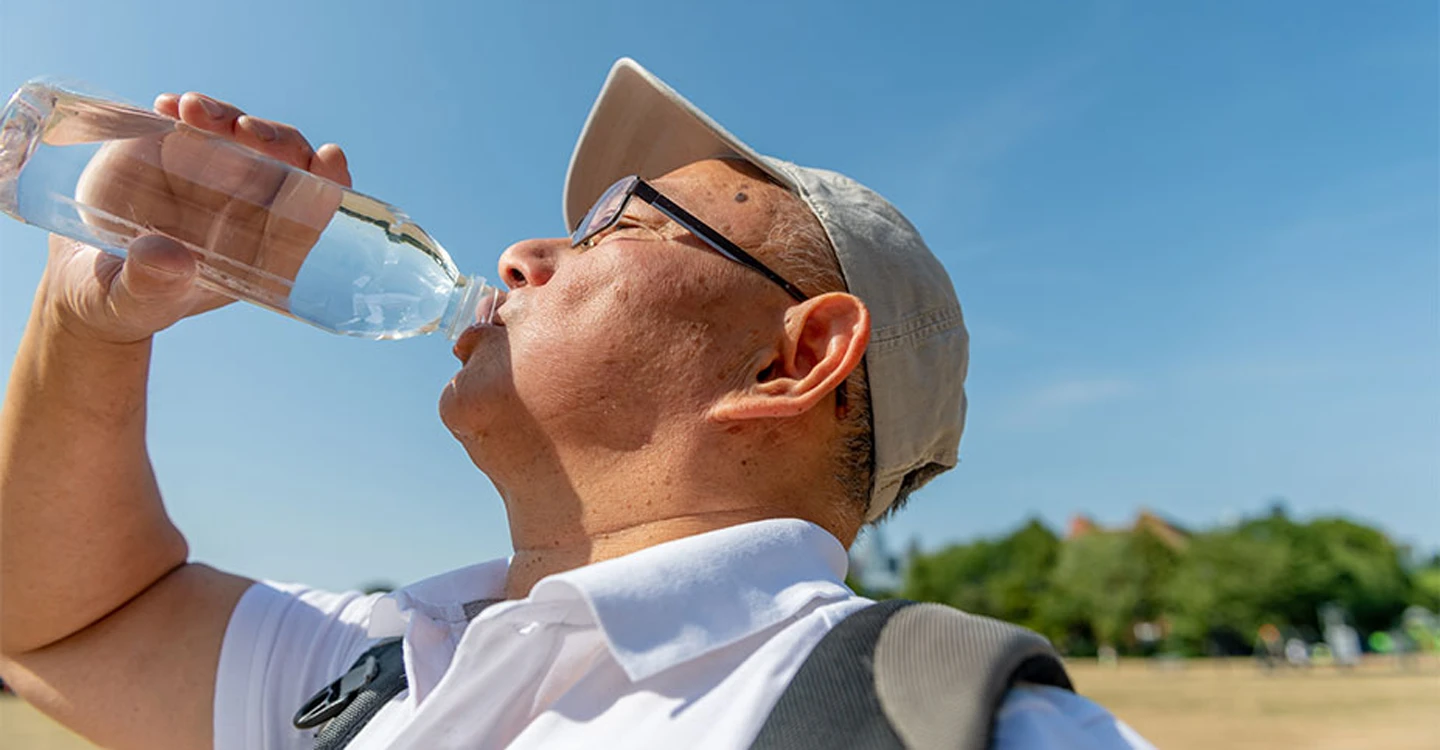ROME, Ga., July 28, 2023 – It's extremely hot right now in the Southeast and protecting yourself from heat-related illnesses, like heat exhaustion and heatstroke, is essential.
Even though senior adults might be less active outside than kids and teens this time of year, they can be very vulnerable to the heat. Older adults are more likely to take prescription medications that hamper the body's ability to adapt to hotter weather.
“Some blood pressure medications, for instance, can cause dehydration because many of them include diuretics that may cause increased urination," said Dr. Michael Land, with Atrium Health Floyd Primary Care Family Medicine in Adairsville.
Children are also susceptible to overheating. Because they are smaller than adults, their bodies tend to get overheated more quickly. Athletes of all ages also need to be careful. Just because you are in shape doesn't mean you need to be out jogging in 95-degree weather.
Here are some tips to help you keep your cool in soaring temperatures.
Be strategic about outdoor time
You don't have to stay inside during these hot days, but you may want to be intentional about when you work and play outdoors. If you have to mow the lawn or work in the garden, wait until after 7 p.m. if possible. Be careful about performing any intense physical activities outside during the hottest part of the day.
Keep cool by taking breaks
Take breaks indoors and in shaded areas to cool off, particularly if you are exercising or playing. “Teach them to come inside immediately if they feel too hot," Dr. Land added.
Dress appropriately
While being fashionable might be your thing, be aware of how your clothes can make you hotter. Wear lighter colors and looser clothing that can help wick sweat away from your skin in hot temperatures. Don't forget a hat and sunscreen!
Drink water and drink more water
Drink plenty of water or a sports drink with electrolytes, even if you aren't thirsty. Avoid sugary and caffeinated drinks, such as soft drinks, sweet tea and flavored coffees. It's important to drink water throughout the day so you are hydrated by the time afternoon temperatures reach their peak. Don't wait until you are already overheated.
Practice car safety
Don't leave people or pets alone in a parked car, even for just a few minutes. You might leave the engine and air conditioner running, but if the engine stalls, the interior of the vehicle will heat up fast, especially if it is parked in the sun.
Watch for heat illness symptoms
It's important to know the signs of heat illness, including heat exhaustion and heatstroke, which can include nausea, dizziness and fatigue.
“Getting overheated can cause severe stomach and leg cramps and spasms or tightness in the hands. Most symptoms resolve on their own after a few hours once you rest and rehydrate," Dr. Land said.
Signs of heat exhaustion include pale skin, fatigue, weakness, increased thirst, fainting, headache, nausea, vomiting, excessive sweating, muscle cramps, irritability, mild fever (100 to 102 degrees) and cool, clammy skin.
Symptoms of heatstroke, the most dangerous heat-related illness, can include confusion, fast breathing, rapid heartbeat, severe headache, dizziness, weakness, passing out, little or no sweating, body temperature over 105 degrees and flushed skin that's hot and dry. Heatstroke is a medical emergency and can be deadly. If someone exhibits these symptoms, call 911 or go to your nearest emergency department immediately.
What to do if someone overheats
If someone is experiencing symptoms of heat exhaustion or if you're waiting for help to arrive for someone with heatstroke symptoms, it's important to bring them indoors or somewhere cool. Place cool washcloths on their skin. Have them lie down and elevate their feet slightly. If they're vomiting, make sure they're lying on their side to prevent choking. Give them sips of cool water if they're conscious.
